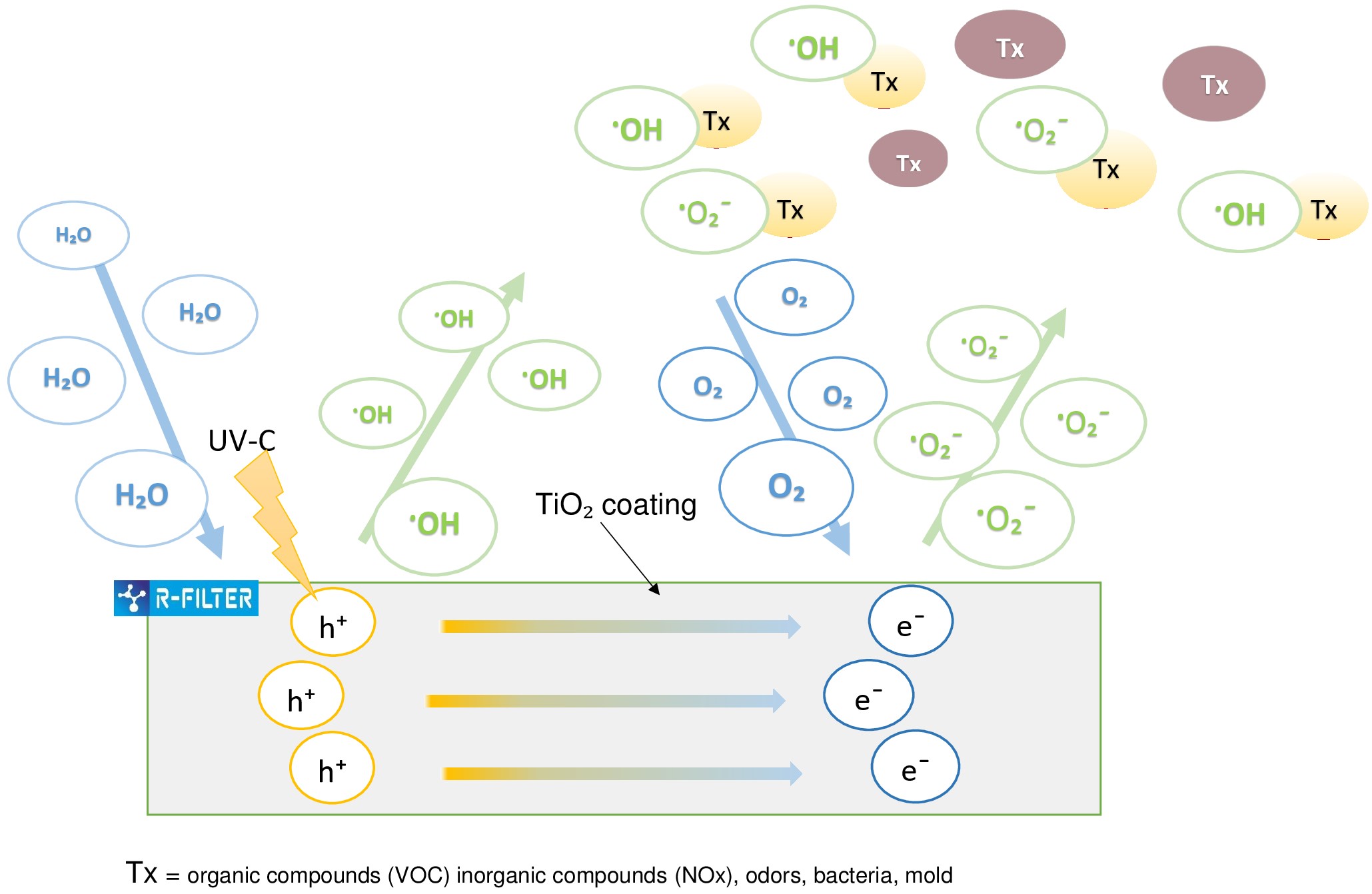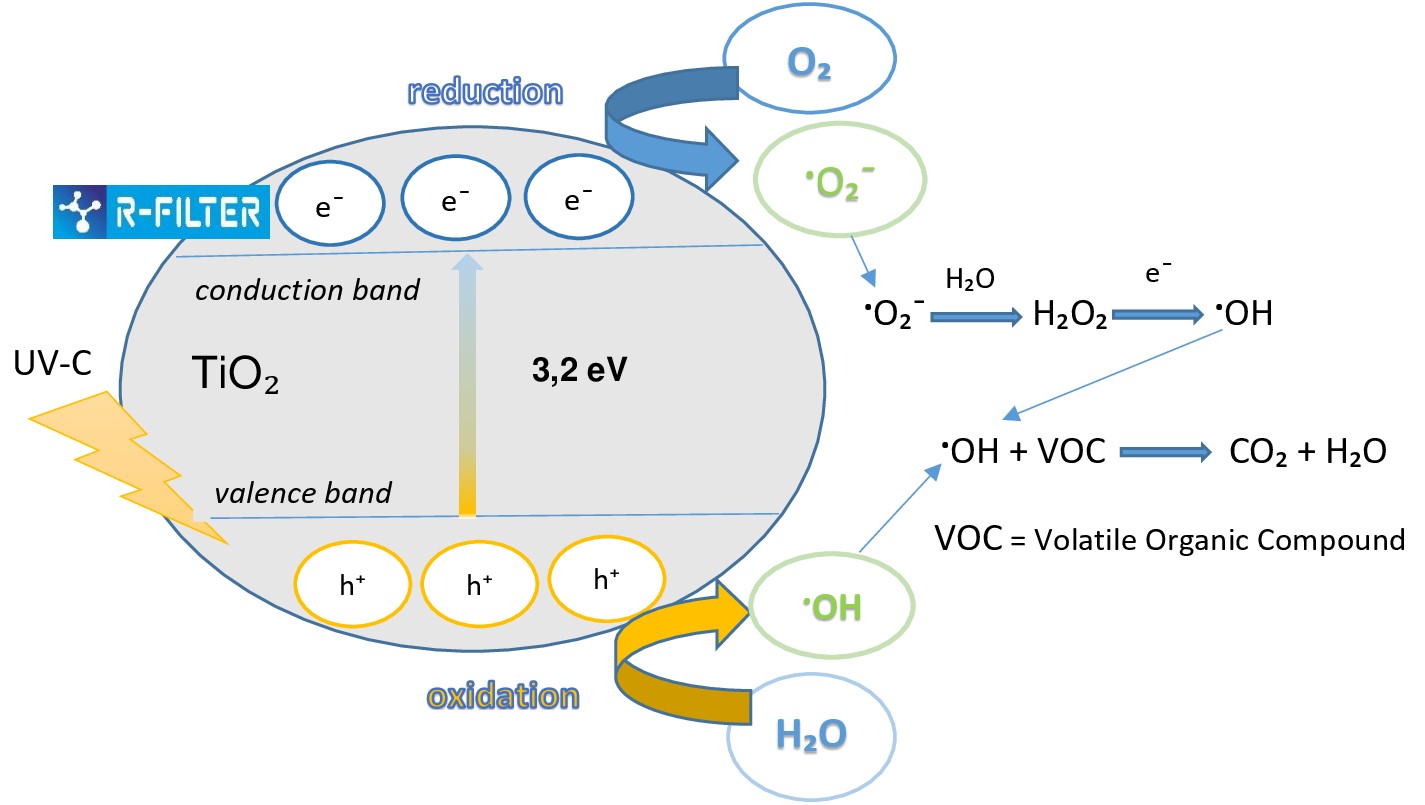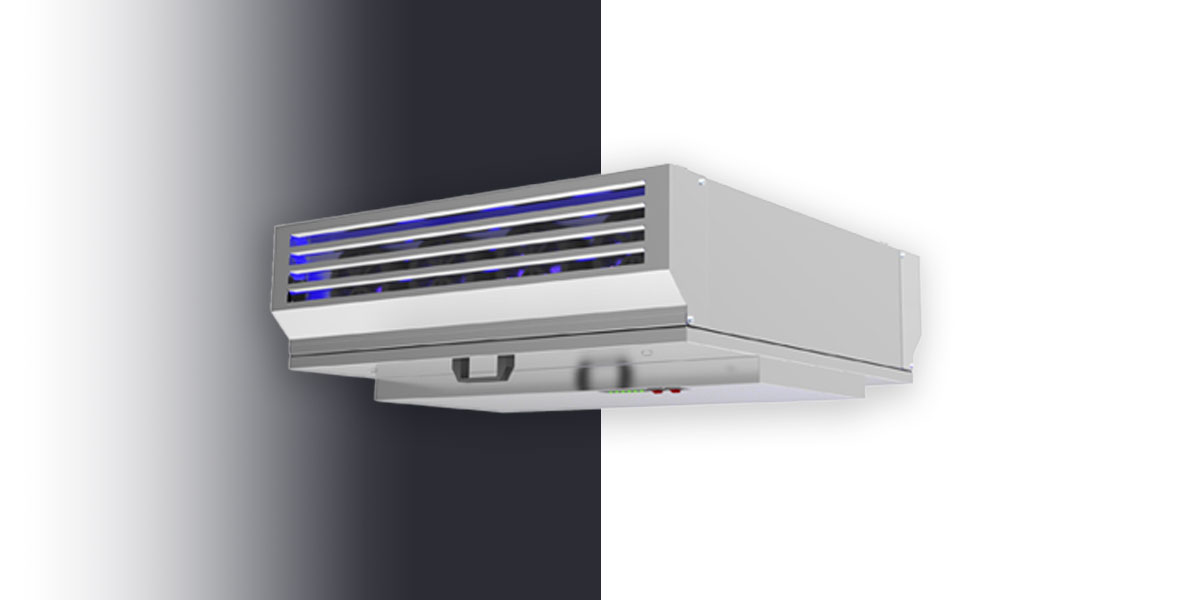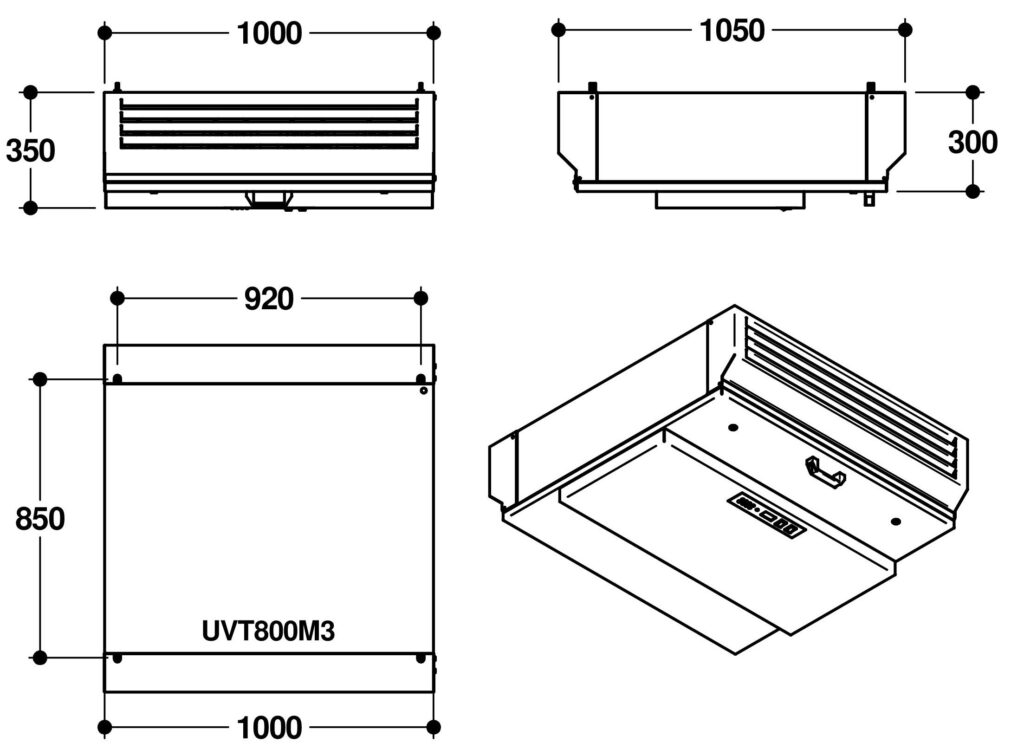UVT
Indoor air treatment in closed rooms (hospitals, industrial plants, vegetable storage, etc.)
The fan of the device circulates the air to be disinfected, while germ-killing UV lamps destroy the airborne pathogens (viruses, bacteria, fungal spores) by the help of the photocatalyst. The device is mounted to the ceiling.
Functional principle
In our ceiling-mounted, for industrial use developed disinfection equipment, we also use titanium dioxide-coated surfac as photocatalysts. The synergistic effect of UV-C light and TiO2 photocatalyst is used. There are fans in the device to circulate the air in the room, to be disinfected end deodorized. The air is first exposed to a disinfecting UV-C light, then flows touching the UV light-activated photocatalyst.
The following air purification process takes place on the surface coated with TiO2:

The above coating is a semiconductor and when light of a certain wavelength strikes the surface of the titanium dioxide, electrons (e–) are transferred from the valence band to the conduction band. At the same time, electron holes (h+) are formed in the valence band. The holes oxidize strongly, while the electrons have a strong reducing effect. From the water arise highly reactive hydroxyl radicals (·OH) and from the atmospheric oxygen reactive superoxide radicals (·O2ˉ). As a result, the pollutants are decomposed. The ultraviolet rays change the DNA structure of microorganisms and cause their destruction. Microbes and organics will be mineralized to water and carbon dioxide.
In a "cross-sectional" picture, the decomposition process of volatile organic compounds (VOCs):


Features, benefits:
- UV light and photocatalyst act synergistically
- High degree of disinfection
- Volatile organic and inorganic compounds, odors, are mineralized to water and carbon dioxide
- Reduces the respiratory diseases
- Ozone and chemical free operation
- Does not contain any filter
- Minimal maintenance effort
- Stainless steel housing, no risk of corrosion
- Easy installation
